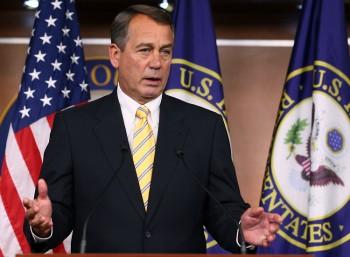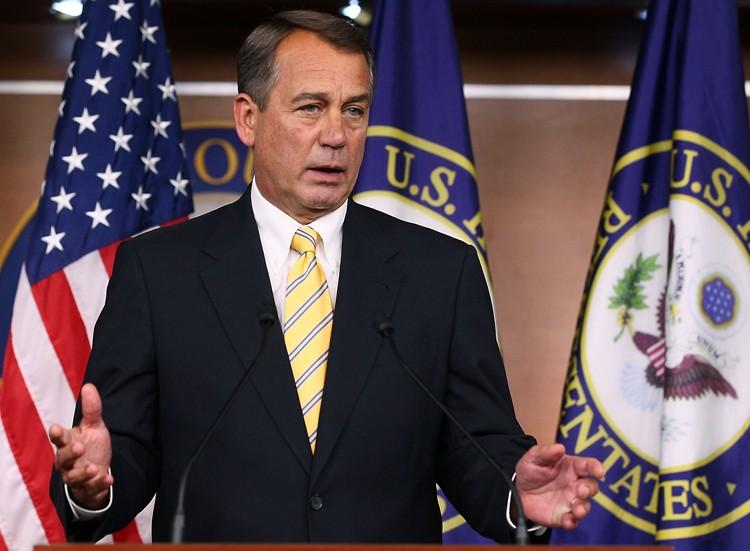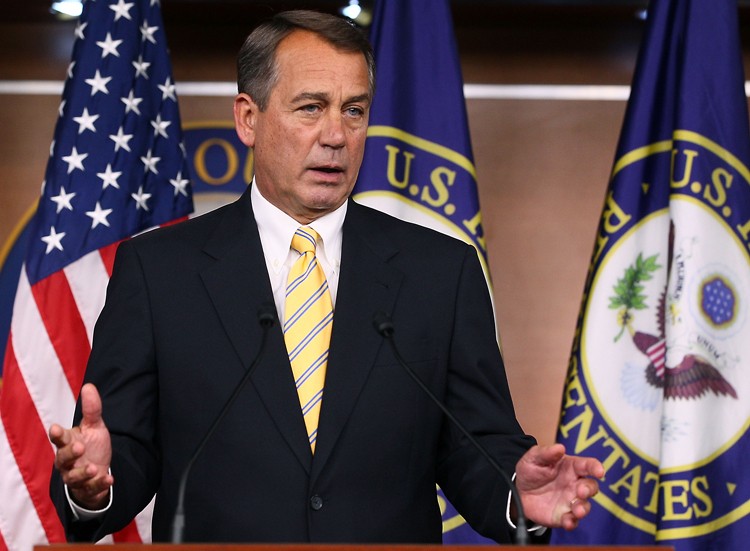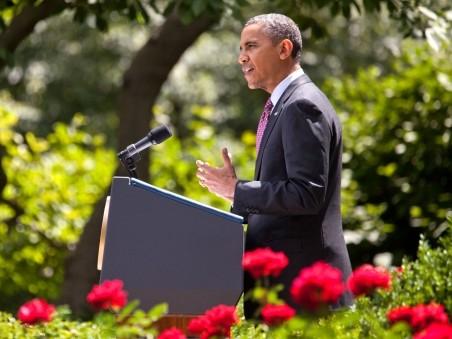Obama and Boehner Nearing New Debt Deal
The new plan is said to cut the federal budget deficit by $3 trillion over the next 10 years.

WASHINGTON, DC - JULY 21: House Speaker John Boehner conducts news conference at the U.S. Capitol. He spoke about the ongoing dept ceiling negotiation's with the Administration. Mark Wilson/Getty Images
|Updated:





